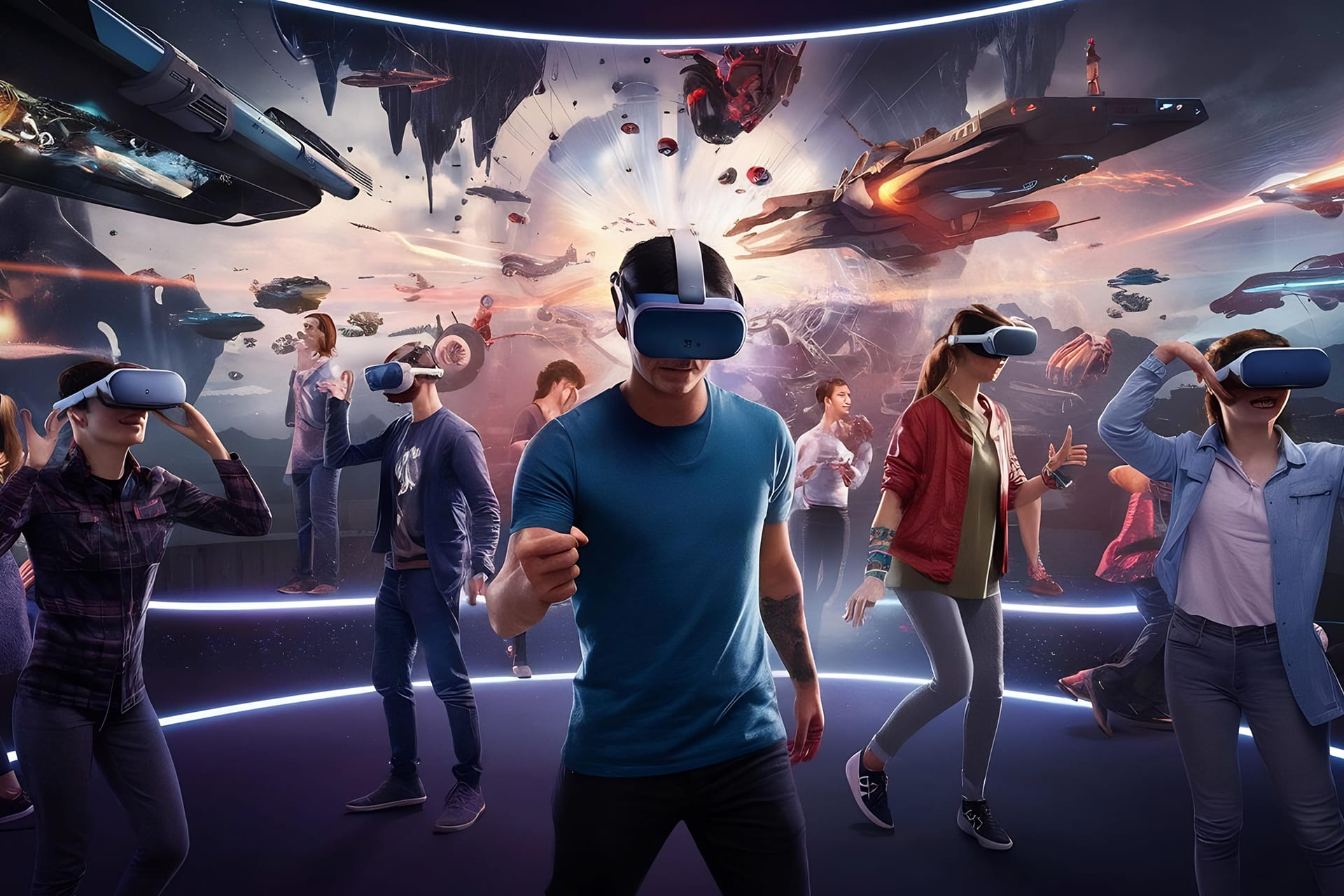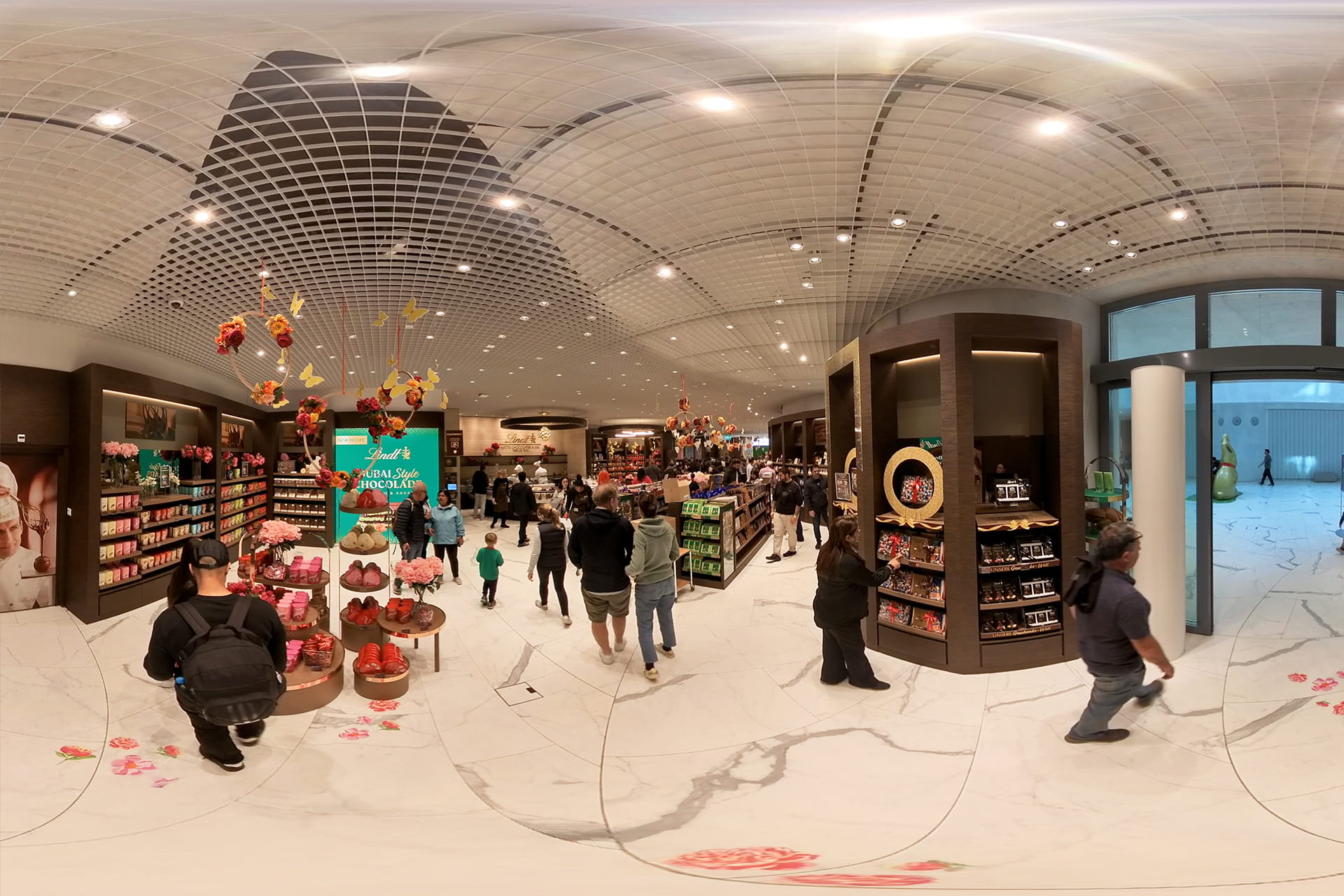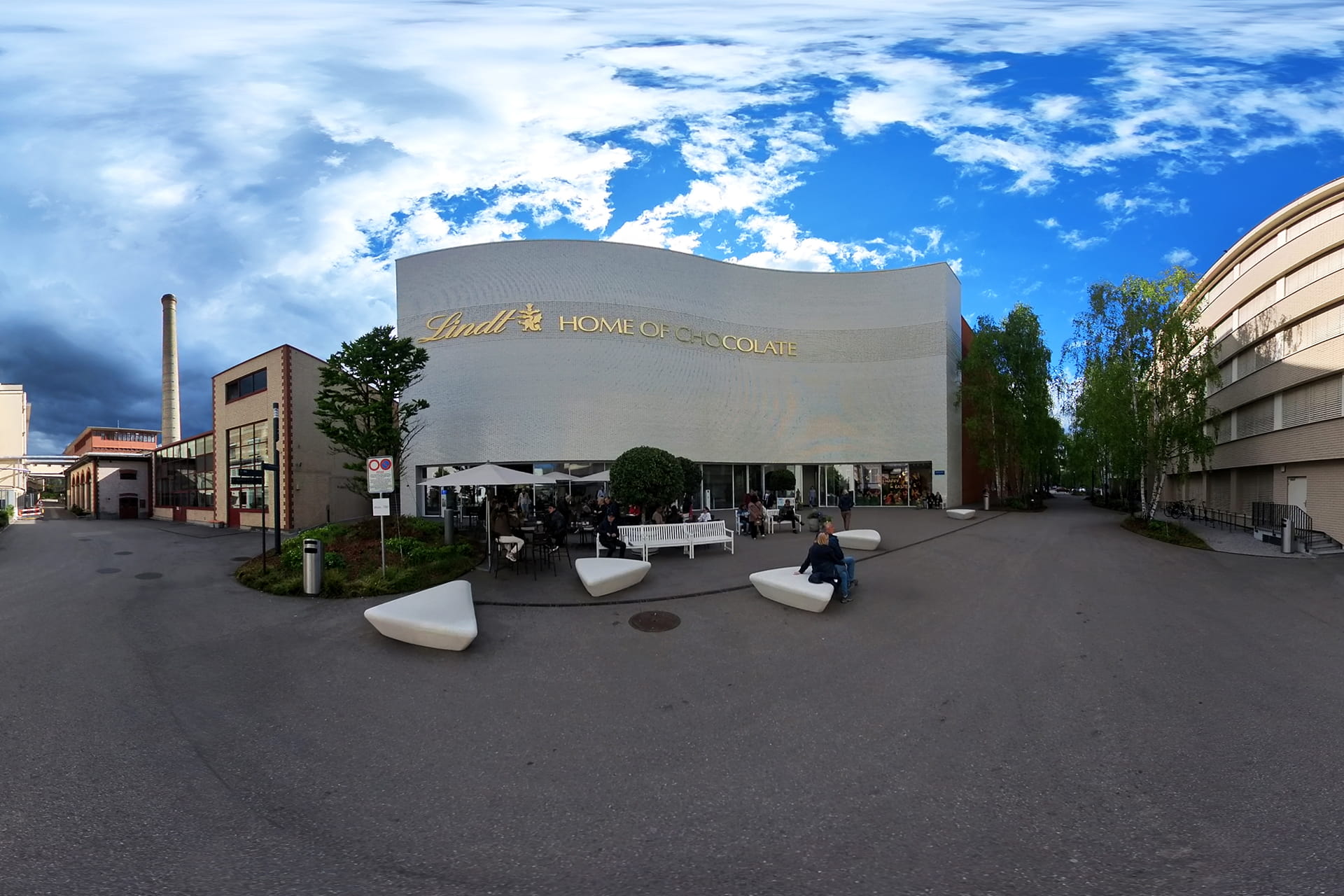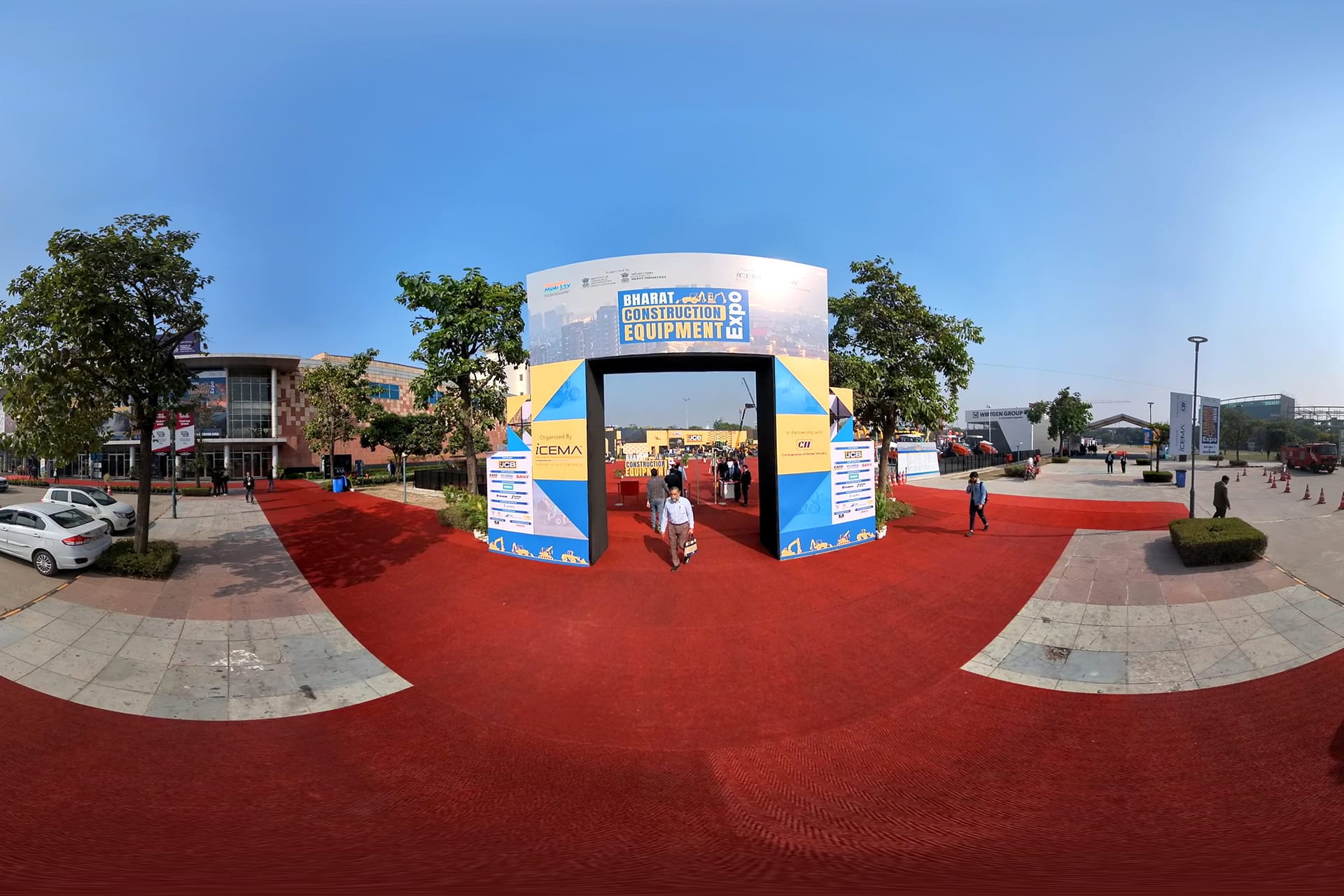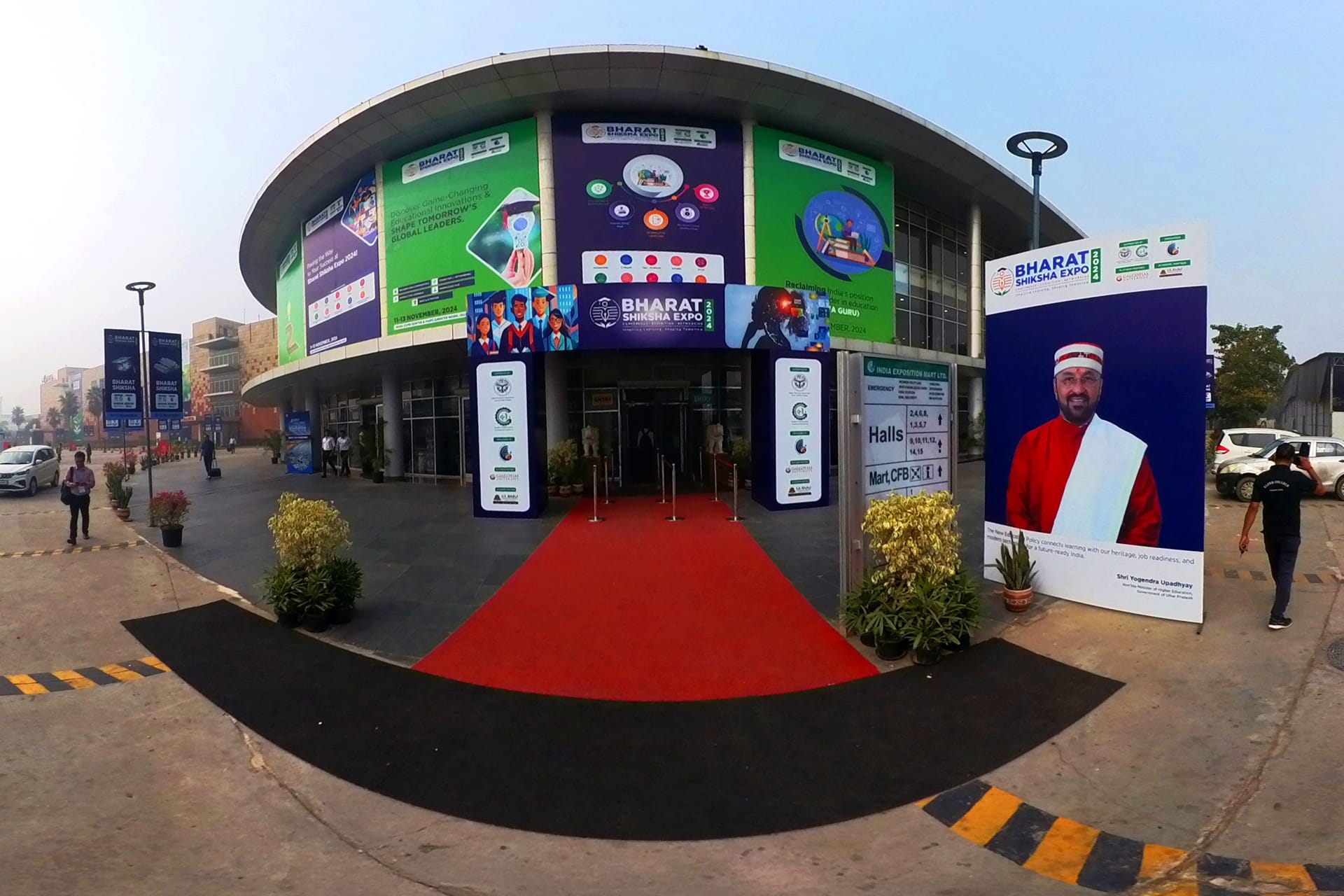Virtual Reality (VR) is revolutionizing the entertainment industry, offering immersive experiences that go beyond traditional media. From gaming and movies to live events and interactive storytelling, VR allows audiences to step inside the action and interact with content like never before.
This blog explores the future of VR in entertainment, highlighting trends, applications, and opportunities for creators and businesses.
1. VR Gaming: A Fully Immersive Experience
- 360° Gameplay: Players experience games from all angles, enhancing realism.
- Interactive Environments: Physical actions like gestures and movement control in-game actions.
- Social VR Gaming: Multiplayer VR platforms allow collaboration and competition in virtual worlds.
2. VR in Movies and Cinematic Experiences
- 360° Films: Viewers can explore scenes from any angle, feeling part of the story.
- Interactive Storytelling: Make choices within the narrative for personalized experiences.
- Virtual Cinemas: Enjoy movies in virtual theaters with friends and other audiences worldwide.
3. Live Events and Concerts
- Virtual Concerts: Attend performances from home in an immersive environment.
- Sports Events: Watch games with 360° perspectives and interactive viewing options.
- Audience Engagement: Fans can interact with performers, players, or other attendees virtually.
4. Interactive Experiences Beyond Gaming and Movies
- Virtual Theme Parks: VR rides and attractions create unique adventures.
- Art and Museums: Explore virtual galleries, installations, and exhibitions interactively.
- Educational Entertainment: Combine fun and learning through immersive VR experiences.
5. Trends Shaping the Future of VR Entertainment
- Cloud-Based VR: Streaming VR content without heavy hardware requirements.
- AI Integration: Adaptive environments and intelligent interactions with characters or objects.
- Cross-Platform VR: Seamless experiences across headsets, mobile, and web platforms.
- Social VR Platforms: Shared immersive experiences connecting users globally.
6. Benefits for the Entertainment Industry
- Enhanced Engagement: Audiences feel immersed, entertained, and connected.
- Revenue Opportunities: Monetize through VR experiences, virtual tickets, and in-app purchases.
- Creative Freedom: Filmmakers and developers can experiment with storytelling and interaction.
7. Implementing VR in Entertainment Projects
- Plan the Experience: Define the purpose, audience, and type of interaction.
- Develop High-Quality 3D Assets: Ensure realistic graphics, environments, and sound.
- Test and Optimize: Smooth performance and intuitive controls are critical.
- Launch and Market: Promote VR experiences via social media, VR platforms, and partnerships.
Conclusion
Virtual Reality is set to reshape the entertainment landscape, offering fully immersive, interactive, and engaging experiences. From gaming and movies to live events and educational experiences, VR provides endless opportunities for creators and businesses.
At 360Biznus, we specialize in custom VR development for entertainment, delivering immersive gaming, cinematic, and interactive experiences that captivate audiences and create lasting impact.
Get in Touch
Whether you want to develop a new 360 Virtual Tour, 3D Product Display, 360 Product Spin Photography, Google 360 Street View or update an existing 360 Virtual Tour, we're eager to assist.
Call / Email Us / fill in the form below.


